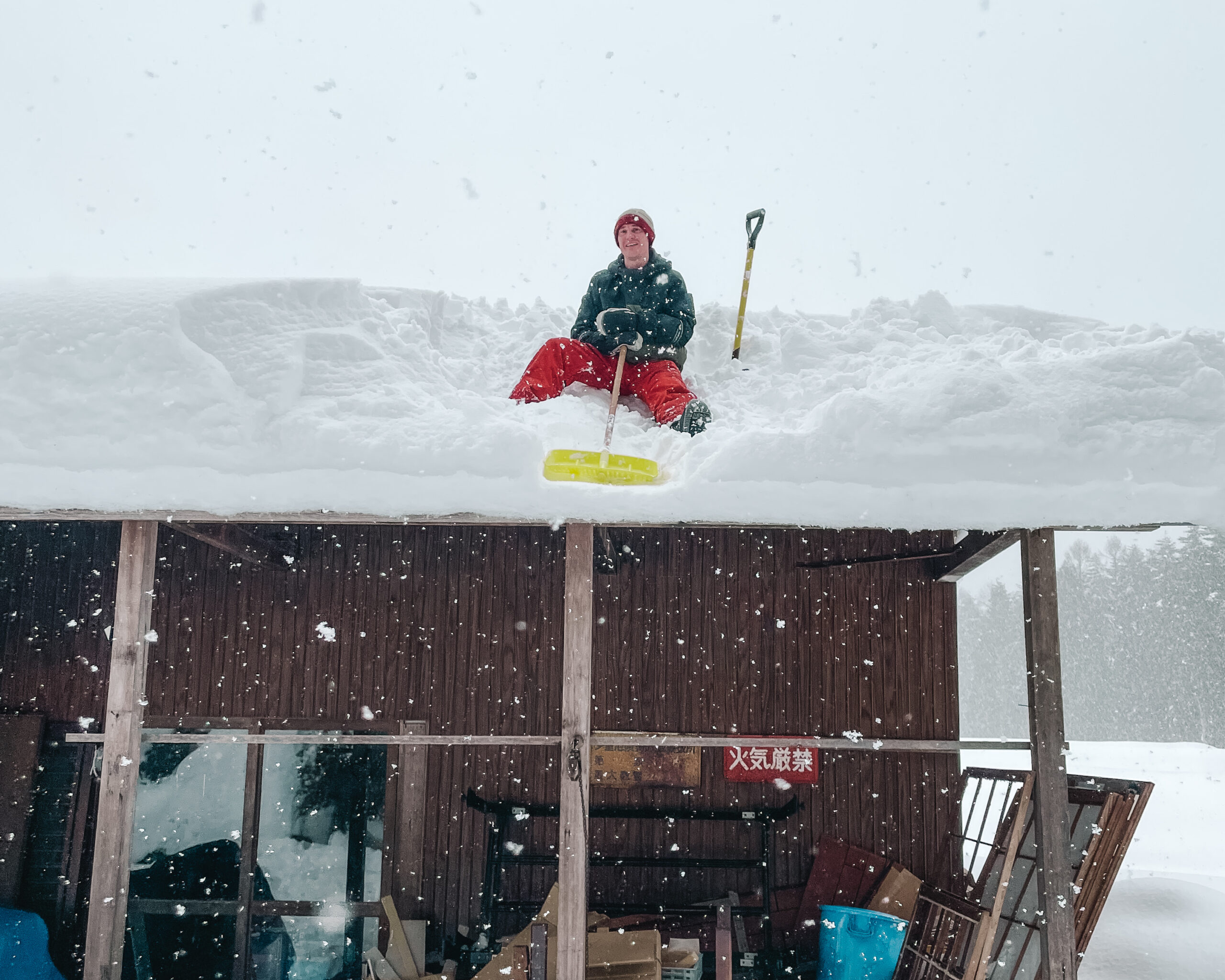Deciding to buy an akiya and live in the Japanese countryside was a massive decision for us and not one we took lightly. Before doing so, we weighed all the pros and cons to decide what would work best for us. Of course, many benefits and challenges only presented themselves once we had taken the step.
In this post, I will highlight some of the things we love about living in rural Japan while looking at why these same things and others may put people off making the same move.
It would be remiss of me to begin discussing life in the countryside without talking about nature and its wonders and obstacles.
Nature and wildlife
Being away from busy roads, shops, bars, and transport means that the countryside can be a tranquil place to relax and enjoy the natural sounds of the wind, birds, insects, and frogs without being woken at night by loud voices or a motorcycle revving.
Japan boasts a vast range of interesting and unique animals and plants that can be seen throughout the country. Living in rural areas means that many animals are regular home visitors, and seeing them enjoying their natural habitats is extraordinary.
Although it can be lovely to have the mountain or ocean on your doorstep and animals running around the garden and town, there are many reasons why this may not be for everyone.

Since moving to the countryside, we have had badgers make themselves a small home by one of our outhouses; moles tear up our garden; snakes live under the house, in the garden, and access the roof space; bears wander nearby; deer and kamoshika (Japanese serow) eat plants and trample others; ant infestations in the kitchen; fruit flies take over the toilet; mosquitoes, black flies, and horseflies eat us alive; mice and shrews run a riot in the attic; woodpeckers pecking at the side of the house damaging the wooden structure; bees, wasps, and giant hornets build hives/nests in the walls; and macaques steal any fruit and vegetables from our garden they can get their cheeky hands on. These are just the tip of the iceberg regarding the number of obstacles animals can cause when living in the countryside. If you are not a fan of animals, it could be enough to put you off visiting the countryside, let alone deciding to live there full time.
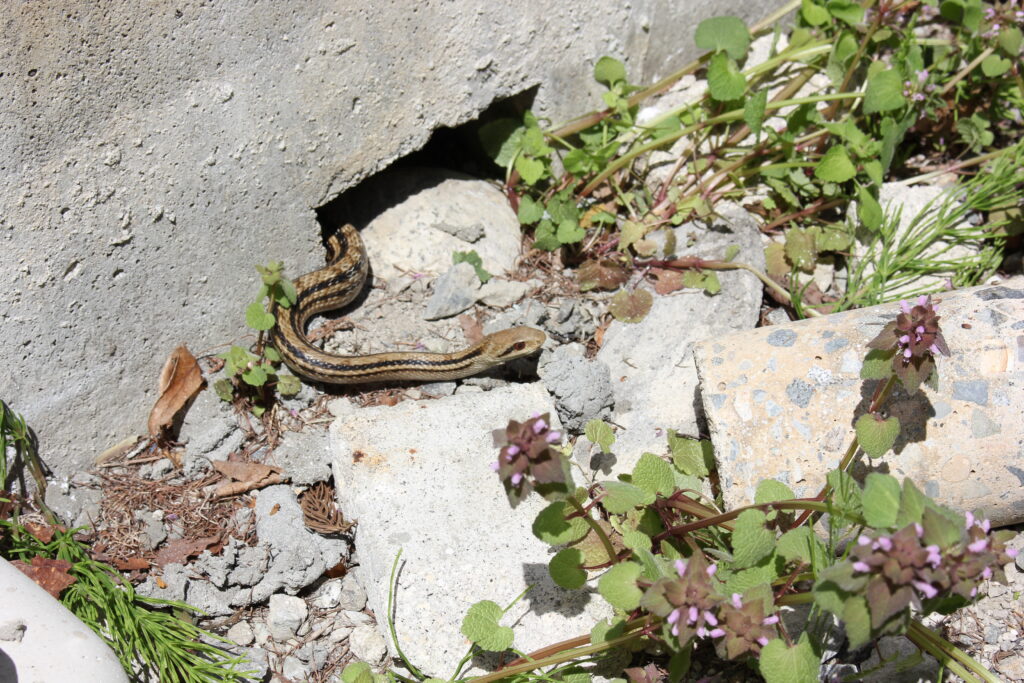
The challenges with nature go further than just those involving animals, as the plants can also cause issues. These could be with less significant things like the weeds in the garden, slightly more annoying factors caused by the number of different pollens that cause allergies, or extremely worrying issues like unstable trees falling dangerously close to the house or cars.
Similarly, where peace and quiet may be a dream for some people, for others, it could be unnerving and make them miss the hustle and bustle or the sound of voices, traffic, and sirens.
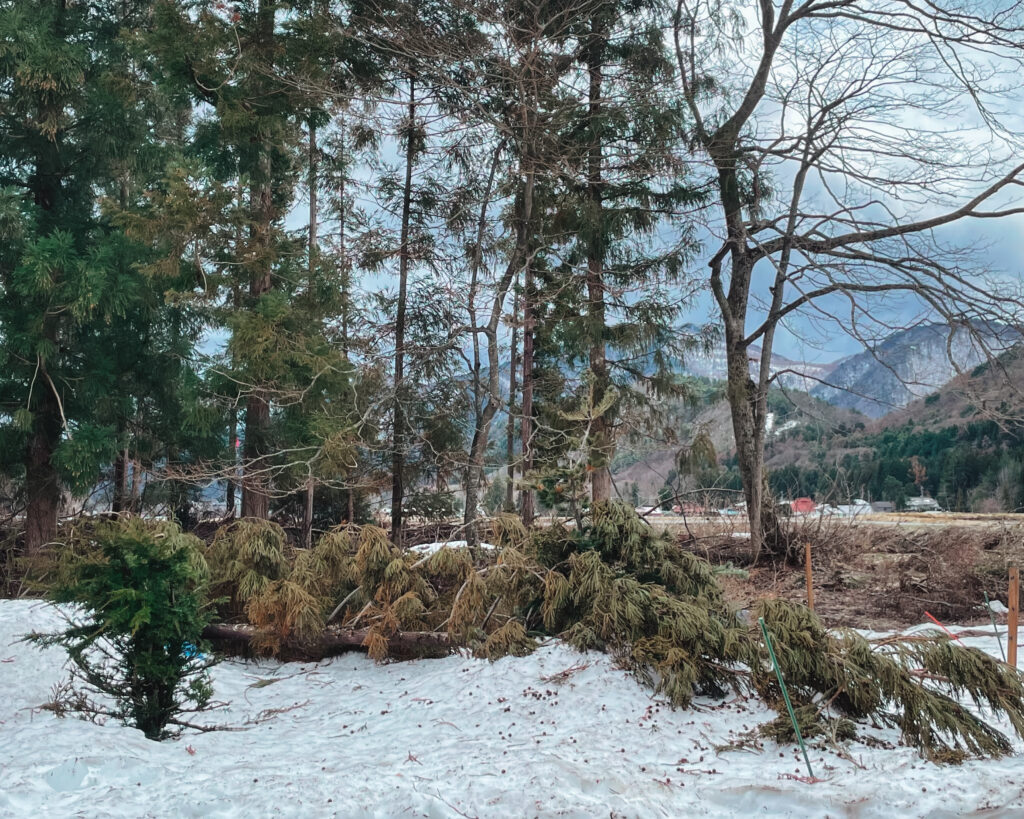
The scenery
Having stunning views on your doorstep is a real treat to wake up to and not one we ever get bored of. With the seasonal changes in Japan being so vastly different, we are lucky enough to witness the changes from snow to cherry blossoms, greenery, and autumnal leaves, which never leaves a dull moment. It is very difficult for me to think of any cons when it comes to the scenery.
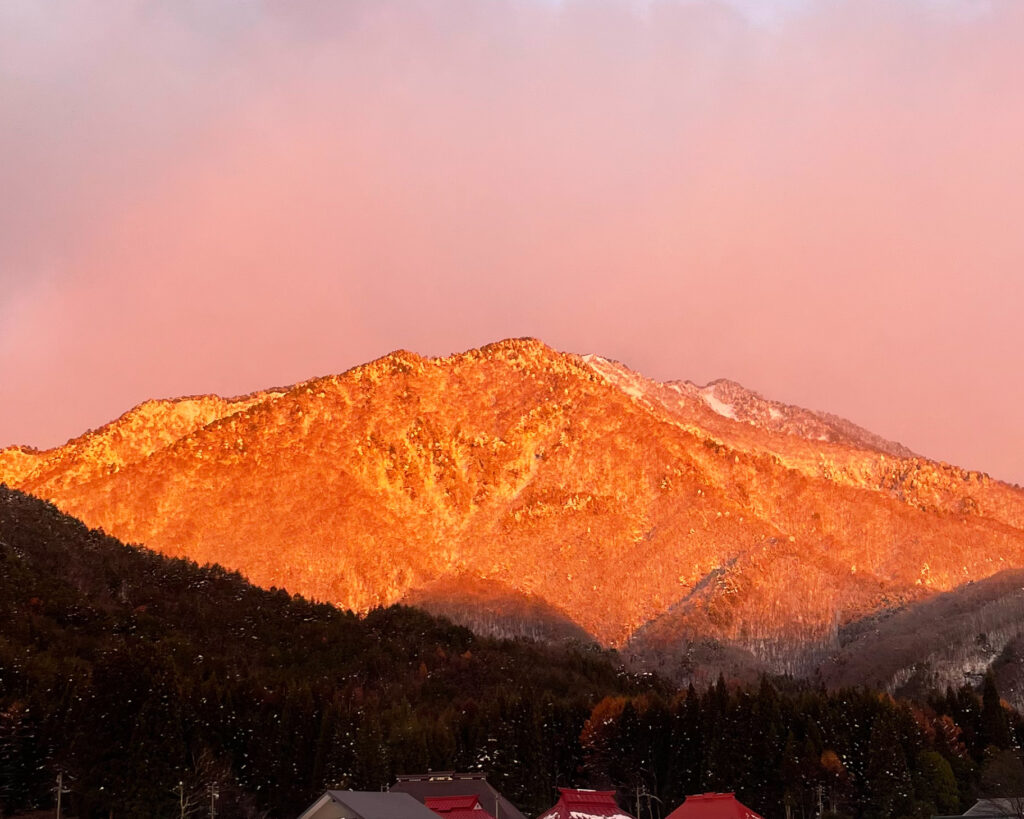
The activities
There is no shortage of things to do in rural Japan for people of all interests throughout the year. Some of the more adrenaline-filled activities include winter sports (skiing, snowboarding, snow scootering, snowmobiling, etc.), climbing, kayaking, white water rafting, surfing, scuba diving, paragliding, hang-gliding, and skydiving.

More relaxing activities are also possible with swimming (in rivers, lakes, or the sea), hiking, SUPing, fishing, snorkelling, nature watching, photography, and soaking up the onsens (natural hot springs), to name just a few.
Although there is a vast range of activities to be enjoyed in the countryside, these may not be everyone’s cup of tea. Those who prefer to enjoy the nightlife of cities, busy shopping and entertainment districts would find far less to attract them to life in the countryside.
The weather
Another huge factor that could often be overlooked is the benefits that diverse weather conditions can bring to those interested in enjoying it. Obviously, weather occurs everywhere, but there are different ways for it to be enjoyed between urban and rural areas. Particularly in large cities, the opportunities to spend time outside engaging in the range of things that take full advantage of the various conditions, are less common than in the countryside.
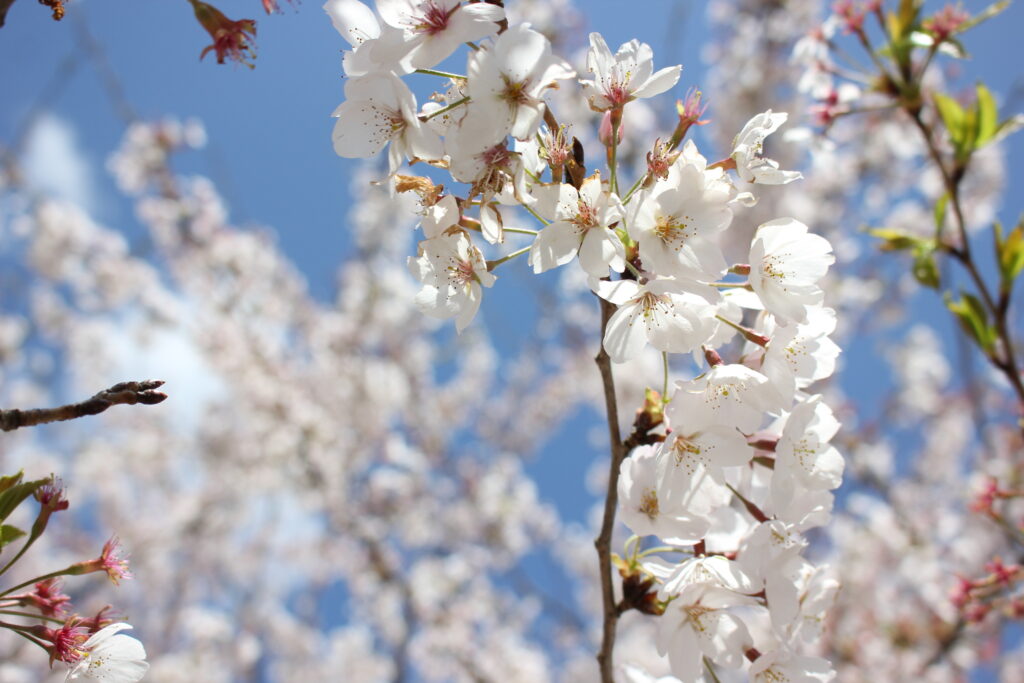
As mentioned above, countless activities can be enjoyed in rural areas of Japan that cannot be found in urban areas. Many of these activities depend on the type of weather needed to perform them. Not only do the changing seasons present magical views and scenery, but they can be so extreme that they offer opportunities that cannot be found anywhere else. One example would be the powder snow that falls in the country’s north in the winter. With some of the heaviest snowfall in the world and some of the driest and lightest snow, it offers those interested in experiencing snow sports in an entirely different fashion from many other areas globally.
The weather brings with it plenty of opportunities to enjoy activities. Still, there is a reason that many of the older residents in some rural regions of Japan talk about the snow and heat with such disdain. The amount of snow that can fall in some areas causes a real challenge, as not only does it mean you will need to clear it in the morning if you want to go anywhere, you may need to wait for a plough to clear the road to your house to get out, and clear the buildup from the roof before it becomes too heavy and damages the building.
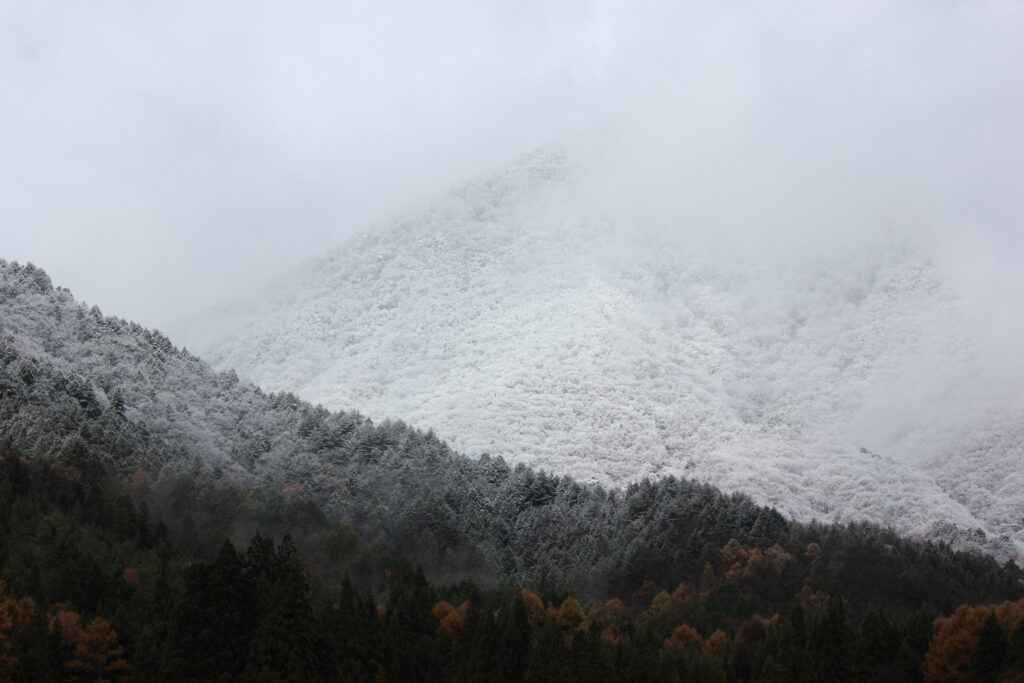
Additionally, many older buildings have poor insulation, and heating can be expensive. The winter months often mean days and nights with very frigid weather, which means it is essential to have the heating on whenever you are home and frequently return to a freezing house. Another issue is that all the water pipes need to be wrapped with heat trace wires to avoid freezing and breaking them. This can also have a significant impact on the cost of heating.
The snow makes driving more hazardous, and the cars need studless snow tyres for the winter months. It is also necessary to spray their undersides with an anti-rust chemical, as all the roads will be salted. Additionally, driving in the snow and ice is more challenging and requires time and practice to familiarise yourself with.
However, snow is not the only weather that causes issues in Japan. Typhoons each year can cause massive damage to houses and property, with winds exceeding 180 kilometres per hour and heavy rainfall.
The prices
Like many other points above, this is another double-edged sword. Many things are cheaper in rural areas – mainly the price of housing, land, accommodation, utilities, entertainment, and eating or drinking out.
Although many of the more considerable expenses to be expected are cheaper in the countryside, there are some things that you can expect to pay more for. The main thing that is more expensive in the countryside is fuel. Although this can vary depending on how close to a port the area is located, it is fair to say, as a general rule, that it is more costly.
Other things that can be more expensive are products and services that need to be imported or delivered. Many things are more difficult or impossible to find in very rural areas, so if you have a taste for those more specific goods, you will likely have to pay a premium to continue enjoying them in a rural area.
Social Life
It may be difficult to argue that living in a rural area would improve someone’s social life as it is likely that they will encounter fewer people and have fewer opportunities to engage in events where they may meet new people. Those with a close-knit group of like-minded people living close by may deepen their relationships through the shared enjoyment of activities. (I am aware that this could be argued in much the same way, whether in the city or countryside.)
A significant factor for many to avoid moving to the countryside would be the challenges it could pose in meeting new people and having an exciting social life. Although we are fortunate to live in an area with many young people with a shared interest in outdoor activities, there are many rural areas in Japan with less active social scenes for younger people and where it is more difficult to meet new people. A move to the countryside may not be for those who are dating and interested in regularly surrounding themselves with a large group of people in different situations, as there just aren’t as many people around.
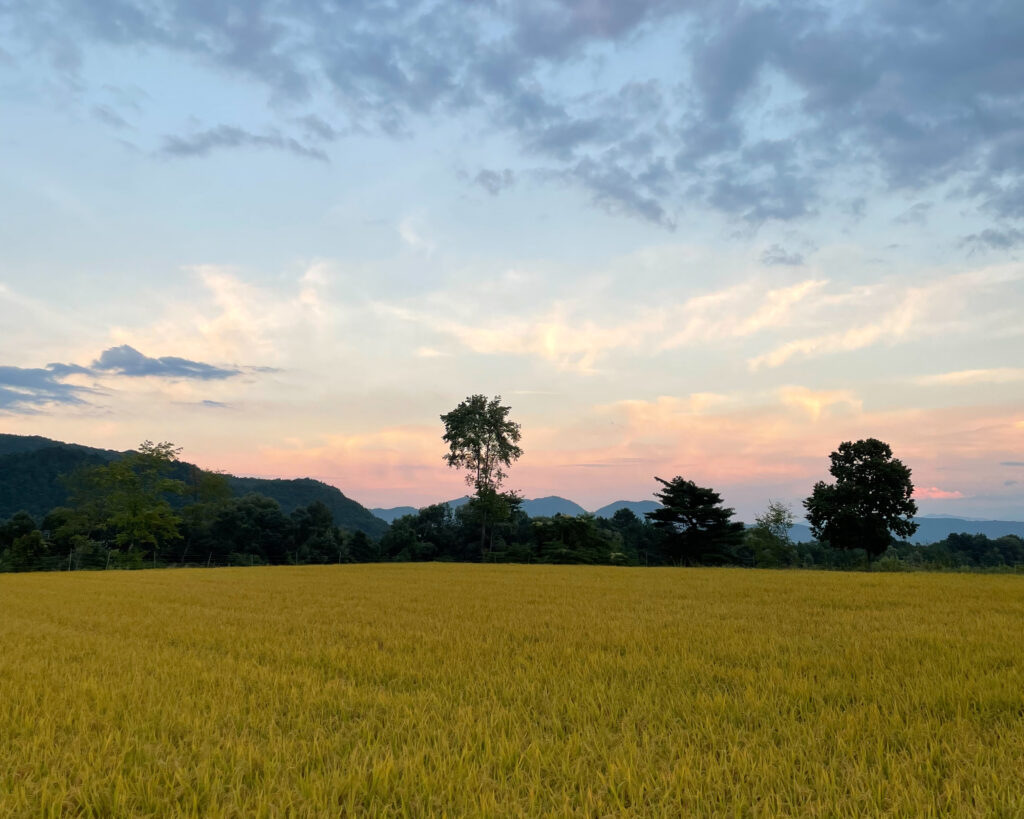
Hopefully, this list highlights why living in the Japanese countryside can present many challenges and benefits. It certainly isn’t something suited to everyone, but if you are considering it, these points can help you assess how suitable it would be for you.

